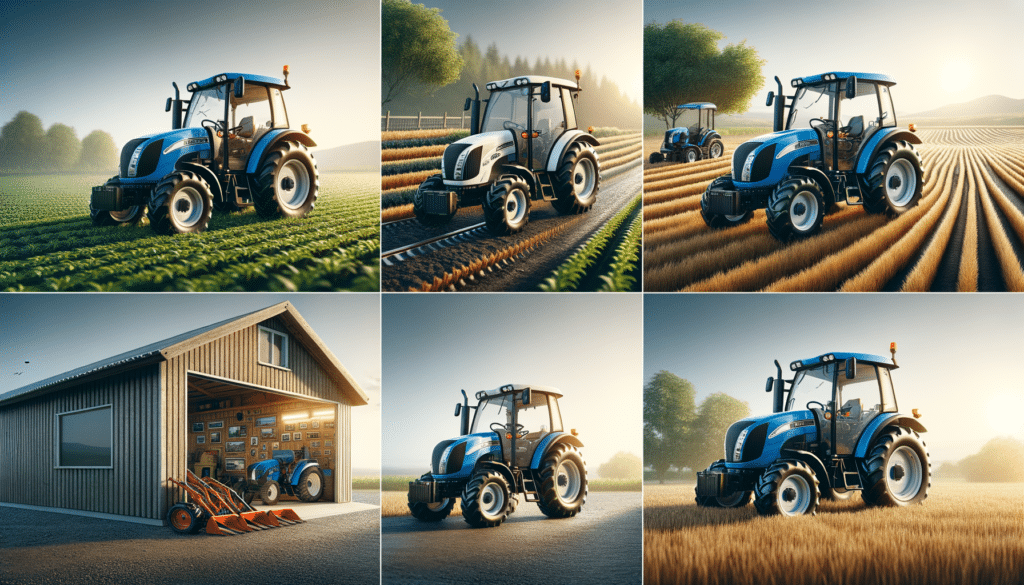Introduction to Small Tractors
Small tractors have become indispensable in modern agricultural practices, especially for small-scale farmers and hobbyists. These compact machines offer a blend of power and efficiency, making them ideal for a variety of tasks that larger tractors might be too cumbersome for. As the agricultural landscape evolves, the need for adaptable and efficient machinery grows, positioning small tractors as a crucial component in sustainable farming practices.
Versatility in Farming Tasks
One of the standout features of small tractors is their versatility. Unlike their larger counterparts, small tractors can navigate tighter spaces, making them perfect for tasks in smaller fields and gardens. They are equipped to handle a wide range of implements, allowing farmers to plow, till, and plant with ease. This adaptability is not only beneficial for crop production but also for maintaining landscapes and managing livestock operations.
Small tractors can be equipped with:
- Front loaders for moving soil and materials
- Backhoes for digging and trenching
- Mowers for maintaining pastures and lawns
- Seeders for precise planting
The ability to switch between these tools efficiently makes small tractors a cost-effective solution for diverse agricultural needs.
Economic and Environmental Benefits
Investing in a small tractor can lead to significant economic benefits for farmers. These machines are generally more affordable than larger tractors, both in terms of initial cost and ongoing maintenance. Their fuel efficiency also translates to lower operational costs, making them an attractive option for budget-conscious farmers.
From an environmental perspective, small tractors contribute to sustainable farming by reducing soil compaction and minimizing fuel consumption. Their smaller size and lighter weight mean they have less impact on the soil structure, preserving the land’s long-term productivity. Additionally, many modern small tractors are designed with eco-friendly engines that emit fewer pollutants, aligning with global efforts to reduce carbon footprints in agriculture.
Technological Advancements
The development of technology has significantly enhanced the functionality of small tractors. Today’s models are equipped with advanced features such as GPS navigation, automated steering, and precision farming capabilities. These technological advancements allow farmers to optimize their operations by improving accuracy in planting and harvesting, which can lead to increased yields and reduced waste.
Moreover, the integration of smart technology in small tractors supports data collection and analysis, enabling farmers to make informed decisions based on real-time information. This data-driven approach is crucial for modern agriculture, where efficiency and precision are key to success.
Choosing the Right Small Tractor
Selecting the appropriate small tractor depends on several factors, including the size of the farm, the types of tasks to be performed, and budget constraints. Farmers should consider the following when choosing a small tractor:
- Horsepower: Ensure the tractor has sufficient power for intended tasks.
- Attachments: Evaluate the compatibility and availability of necessary implements.
- Terrain: Consider the landscape and select a tractor with suitable traction and stability.
- Brand reputation: Research and choose a manufacturer known for reliability and support.
Making an informed decision can enhance productivity and ensure that the tractor meets the specific needs of the farm.
Conclusion
Small tractors play a pivotal role in the agricultural sector, offering flexibility, economic benefits, and environmental advantages. As technology continues to advance, these machines are becoming more efficient and capable, supporting farmers in their quest for sustainable and productive farming practices. By understanding the unique features and benefits of small tractors, farmers can make informed decisions that align with their operational goals and environmental responsibilities.





